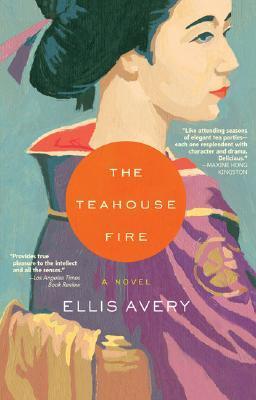Kindle Notes & Highlights
Ura, this is what gets me about the tea world: those people were so poor, they had only enough charcoal to heat water for cooking or washing. So often as not, they really were as dirty as
the farmers said, but it wasn’t by choice.”
He lay silent. When he looked up at me, his voice was thick and forlorn. “Trying to help just one person could break a man in half,” he said. “That was the night I decided I couldn’t work on that scale.” “What do you mean?” I asked. “What did you do?” His eyes shuttered again over his secrets. “Whatever I was able.”
found the word that explained my unease. What she was doing, it was affected.
think that makes a damn’s worth of difference to all the people who wear their bodies to a nub so you can sit here in your pretty little house and”—here he paused, trying to sum up the aim of tea—“feel serene? Carpenters, tea pickers, charcoal men?” “Tea gives them work,” ukako demurred. “Tea keeps them exactly where they are. Tea keeps them exactly the way it once kept me.”
think you stayed here because you have a gift and a skill. Glass windows don’t help anyone any more than tea does, really. I think you got pleasure out of making something beautiful.” She indicated the moon window with a tip of the chin.
She sat quietly, thinking, the bone
globe of her head resting on my shoulder. And then her eyes filled with tears again. “You know what made me so sad, earlier?”
thought, these hands have been hers. The appropriate thing would be to take your own life. Still bowing, I realized that Yukako had just told me how she cared for me: with her whole heart, like Shonagon’s Empress. We were vassal and liege, no less, no more. Like Rikyu, I meant enough to her that she would ask this much of me, that she would dignify what she was asking with a name this grave. For a moment I wished I had Nao’s gun to point at my stomach and prove myself worthy of the comparison. These hands are hers, I thought fiercely. This is my place.
The rest of my life would consist of thousands of minutes, and from each she would be gone.
I paused at a fancy new milk bar, all brass and red velvet, and tried a glass. Was I really going to New York? I could not really believe a place outside Japan existed, and yet here was milk, evidence of my childhood, of a whole milk-drinking world abroad.
When we clattered past the shrine, I saw a group of players rehearsing a piece called Nonomiya, about the ghost of a woman who cannot forgive her enemy, and who therefore cannot pass out of this life and be reborn. I saw the actor-ghost at the spirit gate lift a white-socked foot to leave and set it down, unable. In my heart I paused at the nearby Kannon altar. This time I did not ask for anything to happen. I bowed my head twice—forcing myself not to look back and see if Yukako was among the others on Migawa Street—and I made the simplest prayer I had ever heard: to be happy.
abashed.
I wished so many good things for her just then, this clear, bright young woman, this new penny shining through mud.
At night, while Inko dreams on bakers’ hours, I devour books by lamplight. When I was a girl, the novels ended in marriage and the poems rhymed. The Great War changed people here as much as Meiji changed them in Japan: I am by turns baffled and delighted by the stark new
IT ARRIVED THIS MORNING, the wooden crate from Japan, just as I was finishing Virginia Woolf’s new book, Orlando, my ears abuzz with the aeroplanes her Elizabethan heroine lived so long to witness.
I watched those two girls beside me, the very fact of them: their overlapping hands, their complicit laughter. I had never forgiven Yukako for not being in love with me. I forgave her.


